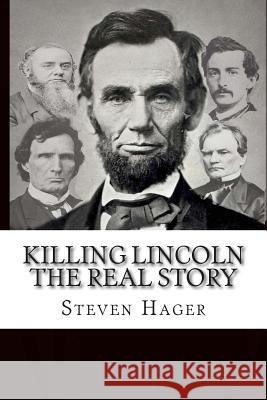Killing Lincoln: The Real Story » książka
Killing Lincoln: The Real Story
ISBN-13: 9781503270268 / Angielski / Miękka / 2014 / 166 str.
Why was President Abraham Lincoln left unguarded when the War Department knew there were serious plots against him? Why was John Wilkes Booth killed when he was discovered locked inside a tobacco barn and surrounded by 25 soldiers? Why were two innocents swiftly hanged by a military tribunal and not allowed to testify in their own defense? The files on the conspiracy trial had been immediately sealed and not available for review by anyone in the interest of national security. A glaring problem, however, was the star witness in the initial military tribunal, Sanford Conover, had recently been exposed as a serial perjurer whose testimony on just about anything was probably available for the right fee. Now the House of Representatives was demanding to see all the evidence used to hang four people. Rather than play along with the government's cover story and rubber stamp the committee report, Representative Andrew Rogers, the sole Democrat on the Judiciary Committee, decided to subject the witnesses to serious cross examination. Rogers probably did not realize behind the scenes, at least one witness was already getting cold feet, as revealed in a letter sent to Conover by "M." A shady physician named Dr. Merritt admitted receiving the biggest bribe: $6,000 for his testimony. Mr. Snevel initially claimed he'd gotten a mere $375, although a newspaper reporter would discover Snevel had gotten an additional $1,000. Rogers established that five witnesses had used false names, including Conover, his wife and his sister-in-law. Instead of arresting Conover as ringleader of this scam, however, he was mysteriously sent back to New York City accompanied by a sergeant-at-arms of the committee for the purpose of finding more witnesses. Immediately after arrival, however, he eluded the guard and disappeared. Secretary of War Edwin Stanton's good friend Representative George S. Boutwell wrote the majority report, which predictably ignored the exposed perjuries and bribes of witnesses who'd melted under Rogers' cross-examination, or any mention of Sanford Conover. The files remained sealed in the interest of national security and would not be reopened for another 80 years. Only a handful of scholars have shown any interest in this Congressional investigation, which sheds so much light on the plot, and the Lincoln assassination is clouded by faithful allegiance to the official story, despite the fact military tribunals for civilians would soon be declared illegal by the U.S. courts. Unfortunately, that was 17 months after civilian Mary Surratt was hanged by one. "The cool turpitude of the whole crew sickened me with shame," wrote Rogers in his dissenting statement, "and made me sorrow over the fact that such people could claim the name American."
Zawartość książki może nie spełniać oczekiwań – reklamacje nie obejmują treści, która mogła nie być redakcyjnie ani merytorycznie opracowana.











